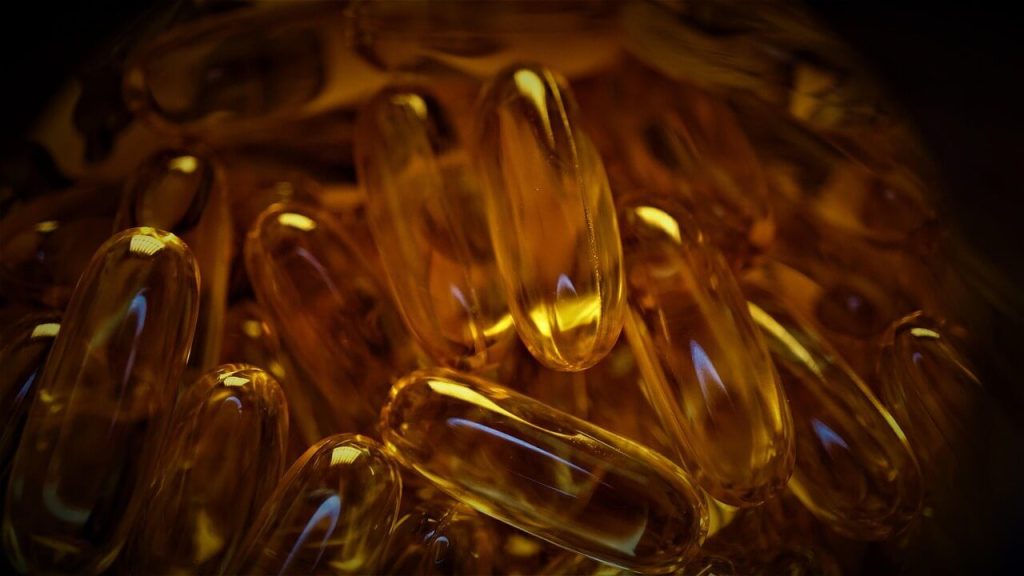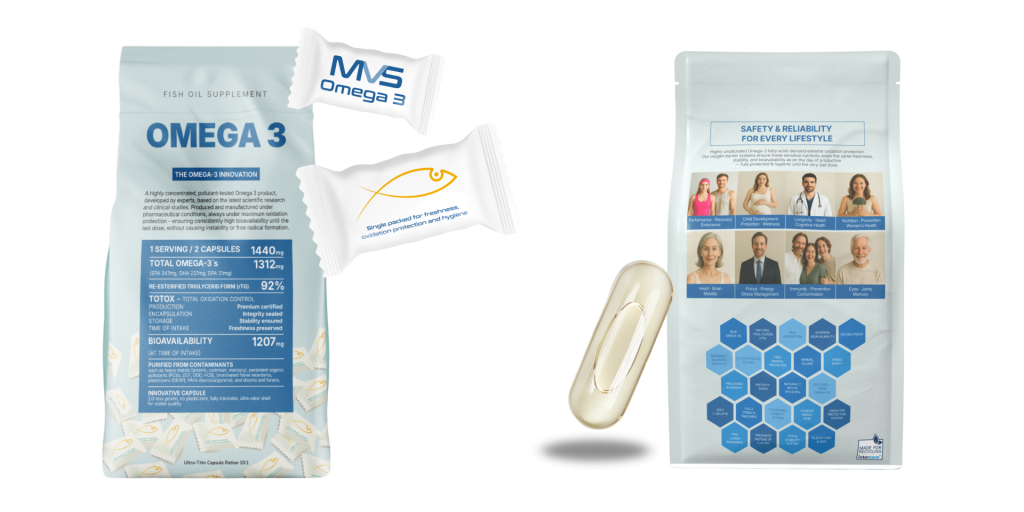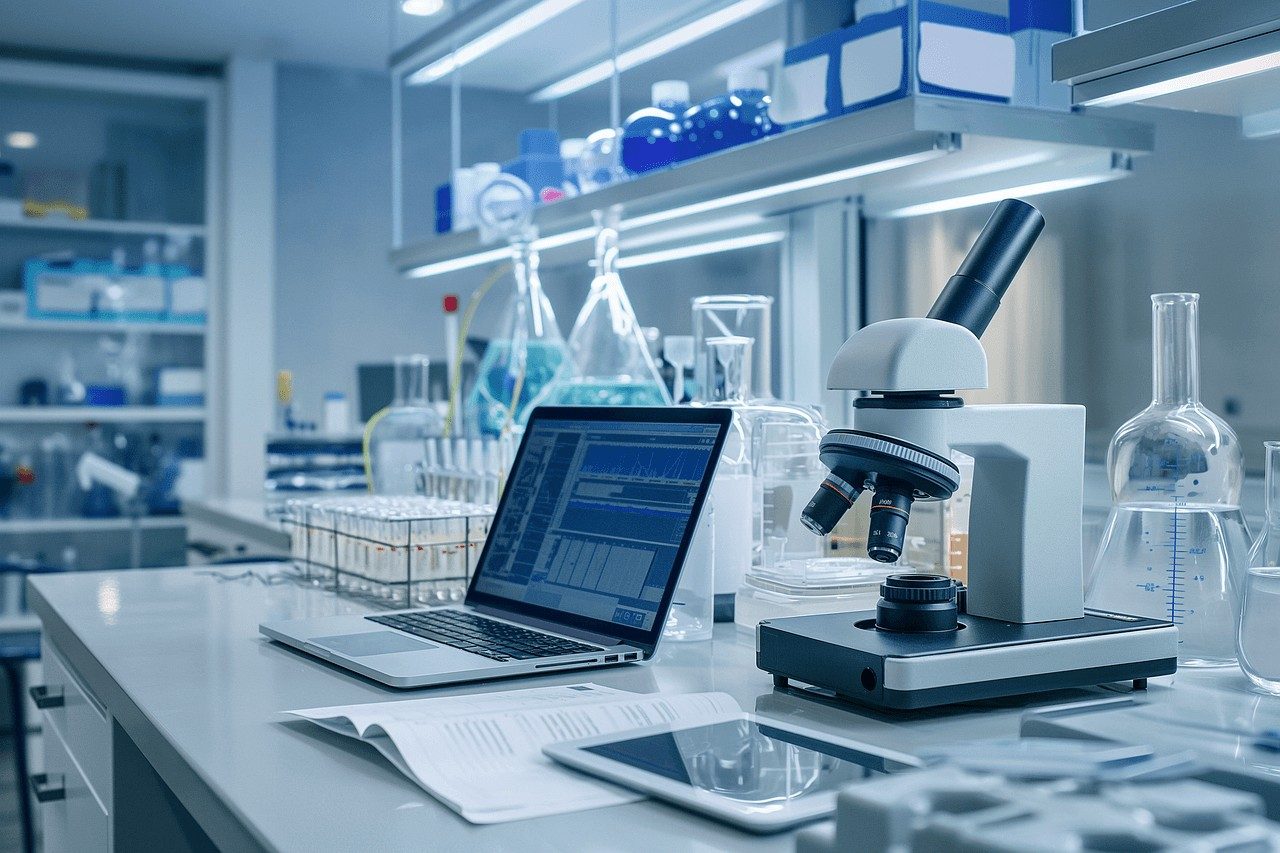Table of Contents
Omega-3 oxidation and stability Scientific Overview:
The oxidation of omega-3-rich oils, particularly eicosapentaenoic acid (EPA) and docosahexaenoic acid (DHA), is a critical factor influencing the quality, stability, and consumer acceptance of these products. Oxidized oils can lead to unpleasant fishy odors and tastes, limiting their appeal. This article explores oxidation factors, testing methods, and industry best practices for maintaining oil freshness.
Key Factors Affecting Omega-3 Oxidation and Stability
Oxidation rates in omega-3 oils are influenced by:
- Exposure to oxygen, light, and heat accelerates oxidative reactions.
- Degree of unsaturation – EPA and DHA, being highly unsaturated, are particularly prone to oxidation.
- Storage conditions – Proper handling and packaging can slow oxidation.

To mitigate oxidation, manufacturers implement strategies such as:
- Using antioxidants (e.g., tocopherols) to slow oxidation.
- Minimizing oxygen exposure during production.
- Refining oils under vacuum to remove oxygen-sensitive compounds.
- Packaging in inert gases (e.g., nitrogen) to prevent oxidation.
Consumer Insights on Omega-3 Taste
A survey conducted across nine countries (Australia, Brazil, China, France, the UK, the USA, Russia, Germany, and Japan) found that taste remains a major barrier to omega-3 consumption:
- 7%-23% of non-users cite the fishy taste as a deterrent.
- 18% of U.S. consumers stop taking omega-3 supplements due to fishy burps.
Measuring Oxidation in Omega-3 Oils
Oxidation is primarily assessed through:
- Peroxide Value (PV): Measures peroxides, the first indicator of oxidation.
- p-Anisidine Value (pAV): Evaluates secondary oxidation products, including aldehydes.
- Sensory Evaluation: A simple taste and smell test can indicate rancidity.
However, some methods have limitations. For example, the pAV test is unreliable for oils containing strong pigments like krill or virgin salmon oil due to carotenoid interference.
Industry Standards and Findings
The omega-3 industry has implemented strict oxidation limits:
- 94-98% of omega-3 products meet regulatory oxidation standards.
- Studies confirm that modern manufacturing techniques effectively reduce oxidation levels.
Application of Research Findings to MVS Omega-3: The Superior Supplement
Developed by MVS Pharma’s medical and pharmaceutical experts, MVS Omega-3 represents a new generation of scientifically designed Omega-3 supplements. With a 92% natural rTG structure, verified bioavailability of 1207 mg, and our proprietary T-TOX™ oxidation control system, it ensures exceptional purity, stability, and absorption. Each batch meets European Pharmacopeia standards and is tested for over 20 potential contaminants — setting a benchmark for transparency and trust in modern nutritional science.

Not all Omega-3 supplements are created equal. The more unsaturated and effective Omega-3 molecules become, the more sensitive they are to air exposure — making oxidation protection the single most critical factor for preserving both safety and bioavailability. Once oxidation begins, oil turns rancid, loses efficacy, and may even generate free radicals.
At MVS Pharma, this challenge defined our mission. We engineered MVS Omega-3 as a next-generation formulation designed for uncompromised purity, verified stability, and maximum biological usability.
Key Facts:
- Pharma-Standard Purification & Testing — each batch is verified to meet European Pharmacopeia standards and is screened for over 20 contaminants, including heavy metals, PCBs, dioxins, PAHs, and plasticizers.
- 90% Purified Omega-3 Concentration — delivering 1440 mg total oil with 1312 mg active Omega-3s (EPA 784 mg, DHA 518 mg) per serving.
- 92% Re-esterified Triglyceride (rTG) Form — structurally identical to natural fish oil for superior absorption (1207 mg bioavailable) and full physiological compatibility.
- T-TOX™ Total Oxidation Control System — exclusive German oxidation-management technology ensuring freshness and molecular integrity from production to the last capsule.
- Innovative Double Packaging — Individually Sealed Protection. Each capsule is individually sealed in an oxygen-free, double-wrapped container filled with argon gas. This advanced protective solution shields the sensitive Omega-3 oil from oxidation, light, and moisture — preserving the purity, stability, and freshness of each capsule until the very last dose.
- Ultra Thin Capsule Release 3.0™ — 2/3 less gelatin, no plasticizers, and >91% active ingredient load for transparency, purity, and optimized payload.
- Natural Tocopherol Matrix (α, β, γ, δ) — balanced antioxidant system calibrated to protect high-purity oil without destabilization.
The result is an ultra-pure, oxidation-protected Omega-3 supplement that maintains its natural structure, freshness, and full efficacy until the final dose — ensuring consistent support for cardiovascular, cognitive, visual, and immune health.
Conclusion
Research confirms that oxidation management is critical in maintaining omega-3 product quality. MVS Pharma applies these insights to produce premium omega-3 capsules with high bioavailability, minimal oxidation, and optimal purity.
References
- Ismail, A., et al. (2016). “Oxidation in EPA- and DHA-rich oils: an overview.” Lipid Technology, 28(3-4), 55-59. DOI: 10.1002/lite.201600013
- Internal and external studies on omega-3 oxidation stability and bioavailability.
Disclaimer:As a service to our readers, MVS Pharma GmbH publishing provides access to our library of archived content in our blog. Please note the date of the last review or update on all articles. No content on this site should ever be used as a substitute for direct medical advice from your doctor or other qualified clinician.


